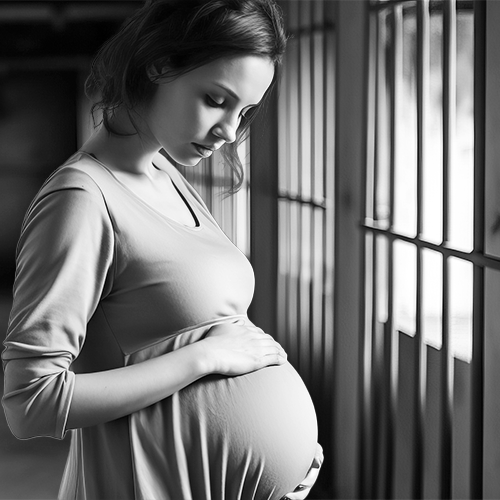Sentencing Pregnant Women and New Mothers

Campaigners have long argued that the cases crossing the threshold for custody involving pregnant women and new mothers should be given special consideration due to the heightened risks faced by expectant women in prison settings. Recent incidents, such as Rianna Cleary's tragic loss of her newborn at HMP Bronzefield in 2019 and Louise Powell's solitary delivery of a stillborn child at HMP Styal in 2020, have intensified demands for revisions to sentencing guidelines.
On 1st April 2024, the Sentencing Council published new guidelines providing guidance to Judges and Magistrates regarding the sentencing of pregnant women and new mothers convicted of a criminal offence(s).
Previously, consideration of pregnancy in sentencing was integrated into the mitigating factor of being the 'sole or primary carer', indicating that when sentencing pregnant offenders, it was essential to weigh the impact on both the health of the offender and the unborn child.
These new guidelines include a new dedicated mitigating factor ‘Pregnancy, childbirth and post-natal care.’
Sukhdip Randhawa of KANGS comments on this new mitigating factor.
When Will the New Mitigating Factor Be Considered?
Judges and Magistrates adhere to defined guidelines when handing down sentences to offenders, unless, in the unique circumstances of the case, it would not serve the interests of justice to do so.
The New Mitigating factor provides that a court may take into consideration, when sentencing a pregnant or post-natal woman, i.e. a new mother who has given birth in the previous twelve months:
- her medical needs, including her mental health needs,
- the effect of the sentence on her physical and mental health,
- any effect of the sentence on the child.
These factors should be considered in a ‘pre-sentence report’ prepared by the Probation Service if consideration is being given to imposing a custodial or community sentence.
When determining the appropriate sentence for an offender, the court must consider the seriousness of the offence, the impact on victims and the circumstances of the offender. It is recognised that the imposition of a custodial sentence on a pregnant offender or a new mother can be extremely harmful to both the offender and the child.
Pregnant women in custody are clearly, potentially vulnerable to greater risks of both physical and mental health needs which may also increase the risks affecting a newly born child.
The NHS regards all pregnancies in prison as high risk. Imprisonment should not be imposed where a custodial sentence would be disproportionate to achieving the aims of sentencing.
How Can We Assist?
In circumstances where a client pleads guilty or is convicted after trial, the Sentencing Court will be required to consider an appropriate level of penalty. This provides the opportunity for the offender to offer detailed mitigation to the Court aimed at seeking the most lenient sentence available.
The KANGS team brings considerable experience accumulated over many years of presenting mitigating circumstances to Courts on behalf of clients. Achieving the best outcome demands great expertise, which is why our solicitors stay thoroughly informed about the evolving legal landscape, staying abreast of recent or upcoming changes in sentencing guidelines.
KANGS Solicitors prides itself on its esteemed reputation in providing expert criminal defence services, representing clients facing allegations of every nature. If you need legal advice or assistance, we are here to help, please do not hesitate to reach out using the details below:
Tel: 0333 370 4333
Email: info@kangssolicitors.co.uk
We provide an initial no obligation consultation from our offices in London, Birmingham, and Manchester. Alternatively, we provide initial consultations by telephone or video.






